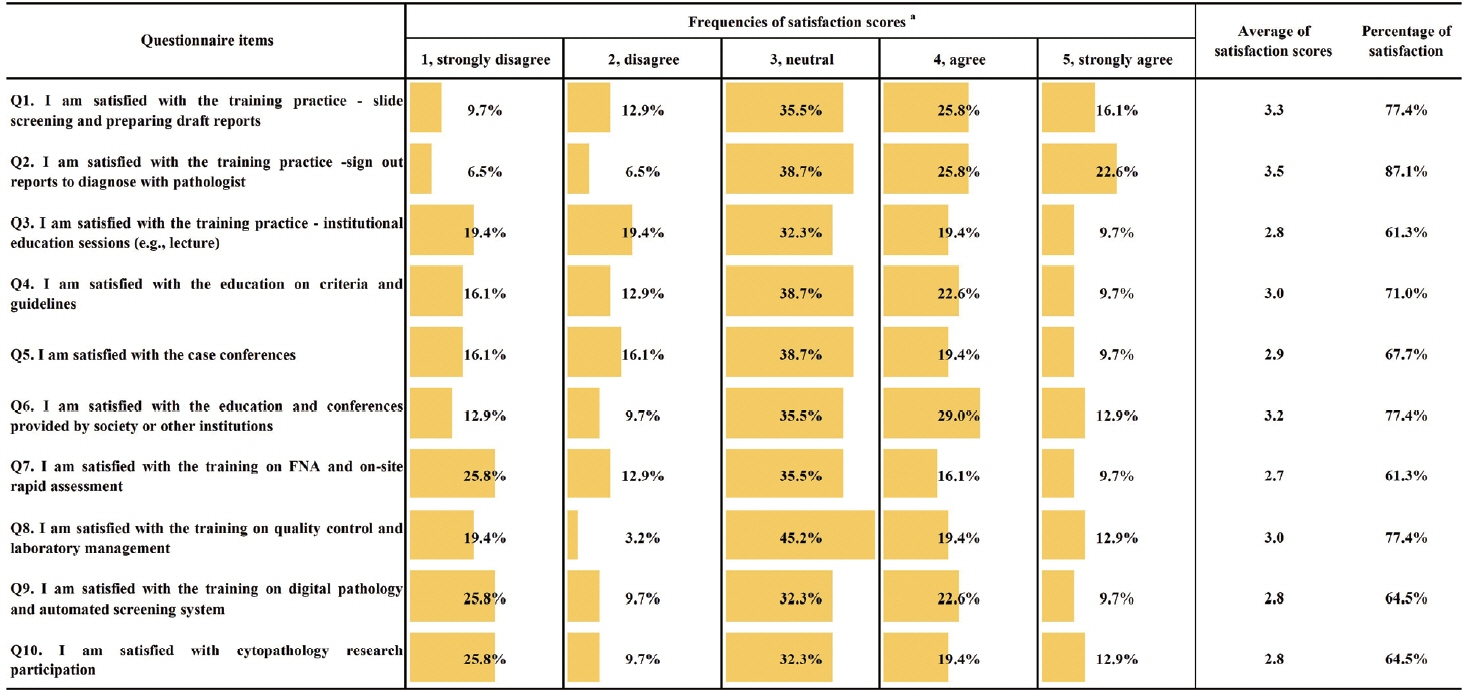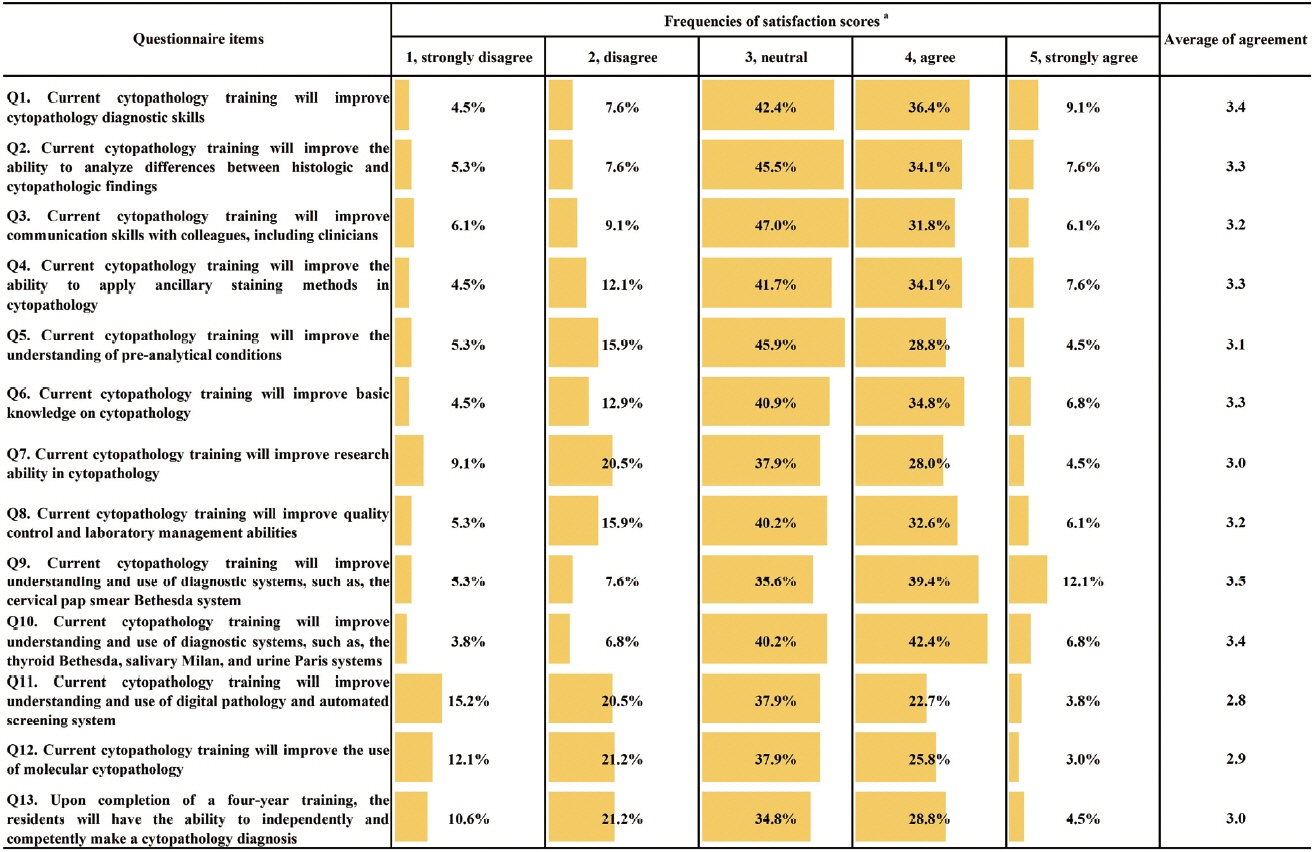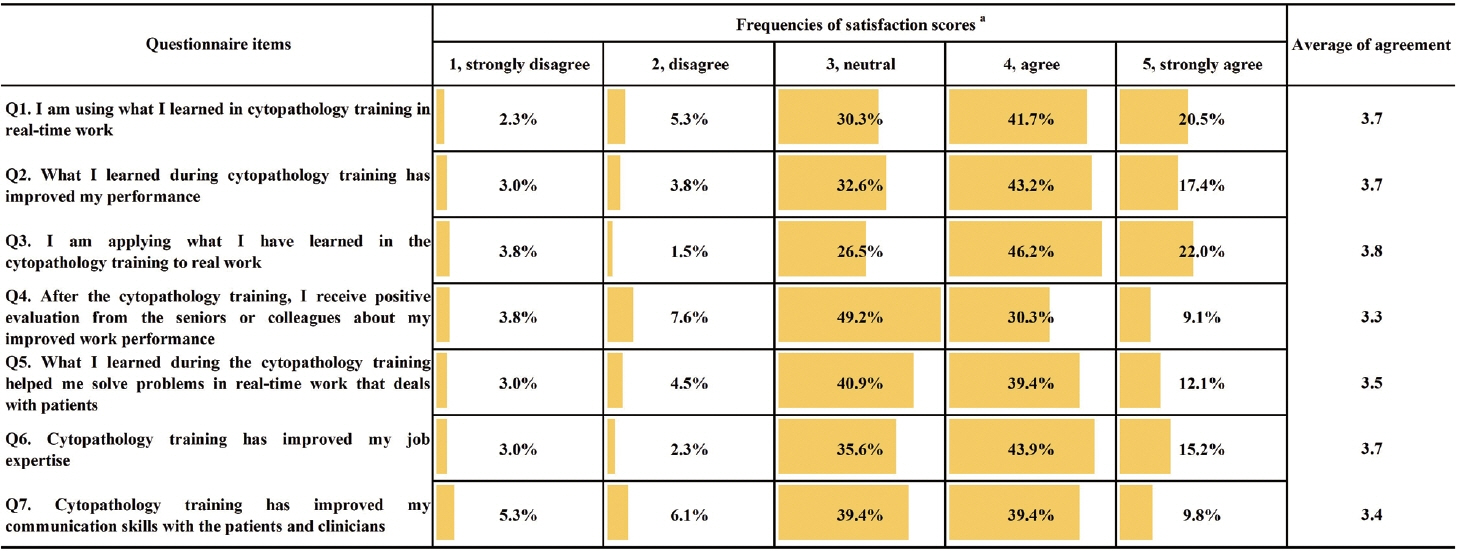J Pathol Transl Med.
2023 Mar;57(2):95-101. 10.4132/jptm.2023.01.06.
Current state of cytopathology residency training: a Korean national survey of pathologists
- Affiliations
-
- 1Department of Pathology, St. Vincent’s Hospital, The College of Medicine, The Catholic University of Korea, Seoul, Korea
- 2Department of Pathology, Yeouido St. Mary’s Hospital, College of Medicine, The Catholic University of Korea, Seoul, Korea
- 3Department of Pathology, Konkuk University School of Medicine, Seoul, Korea
- 4Department of Pathology, Konkuk University Chungju Hospital, Chungju, Korea
- 5Department of Pathology, Inje University Busan Paik Hospital, Inje University College of Medicine, Busan, Korea
- KMID: 2540495
- DOI: http://doi.org/10.4132/jptm.2023.01.06
Abstract
- Background
Although the Korean Society for Cytopathology has developed educational goals as guidelines for cytopathology education in Korea, there is still no systematic approach to cytopathology education status for pathology residents. Furthermore, satisfaction with cytopathology education and with the outcome of the current training/educational program has not been investigated in Korea. This study aimed to obtain comprehensive data on the current state of cytopathology education for residents and evaluate education outcomes.
Methods
An online survey was conducted in December 2020 for the board-certified pathologists and training residents registered as members of the Korean Society for Cytopathology. The questionnaire comprised questions that investigated the current status of cytopathology at each training institution, the degree of satisfaction with the work and education related to cytopathology, outcomes of cytopathology training, and educational accomplishments.
Results
Of the participants surveyed, 12.3% (132/1,075) completed the questionnaire, and 36.8% (32/87) of cytopathology residents participated. The mean overall satisfaction with cytopathology education was 3.1 points (on a 1- to 5-point scale, 5: very satisfied). The most frequent suggestion among the free description format responses was to expand educational opportunities, such as online education opportunities, outside of the individual institutions.
Conclusions
Our results showed that cytopathology training in Korea needs further improvement. We expect that this study will inform systematic training of competent medical personnel armed with broad cytopathology knowledge and strong problem-solving abilities.
Keyword
Figure
Reference
-
References
1. Lim SC, Yoo CW. Current status of and perspectives on cervical cancer screening in Korea. J Pathol Transl Med. 2019; 53:210–6.2. Min KJ, Lee YJ, Suh M, et al. The Korean guideline for cervical cancer screening. J Gynecol Oncol. 2015; 26:232–9.3. Oh EJ, Jung CK, Kim DH, et al. Current cytology practices in Korea: a nationwide survey by the Korean Society for Cytopathology. J Pathol Transl Med. 2017; 51:579–87.4. Korean Society for Cytopathology [Internet]. Seoul: Korean Society for Cytopathology;2022. [cited 2022 Aug 3]. Available from: https://www.cytopathol.or.kr/resident_01.asp.5. Cohen MB, Perez-Reyes N, Stoloff AC. The status of residency training in cytopathology. Diagn Cytopathol. 1995; 12:186–7.6. Herbert A, Cochand-Priollet B, et al. Survey of medical training in cytopathology carried out by the Journal Cytopathology. Cytopathology. 2010; 21:147–56.7. Yu GH; Goals and guidelines for residency training in cytopathology. Goals and guidelines for residency training in cytopathology. Diagn Cytopathol. 2011; 39:455–60.8. Gill B, Slater S. What should be done to improve cytopathology training in the UK? Cytopathology. 2010; 21:142–4.9. Tambouret R, Nayar R, Pitman MB, Ehya H. Standardized cytopathology training through accreditation in the United States. Cytopathology. 2010; 21:139–41.
- Full Text Links
- Actions
-
Cited
- CITED
-
- Close
- Share
- Similar articles
-
- Overseas Residency Training Systems and Implications for Korea
- A Survey Report on Cataract Surgical Experiences during Ophthalmology Residency in Korea
- Issues, improvements and policy directions in residency program in Korea
- Residency training: training program renewal and evaluation of training
- Response of psychiatrists toward current psychiatric residency training







